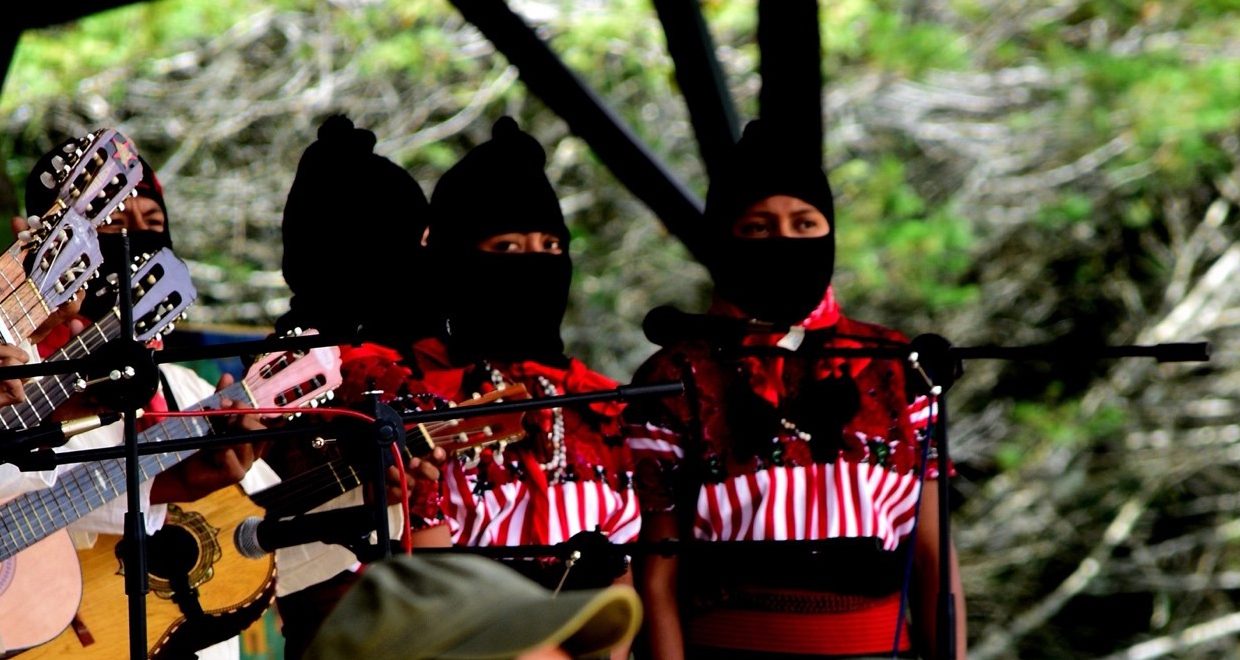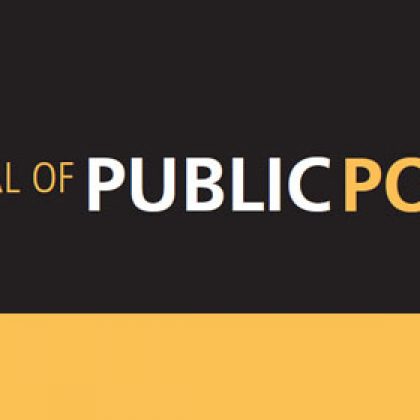The Meaning of Freedom and the Kingdom of God
The author of the Gospel of Mark describes the beginning of Jesus’s mission by situating it in the context of persecution and hope in an alternative: “Now after John was arrested, Jesus came to Galilee, proclaiming the good news of God, and saying, ‘The time is fulfilled, and the kingdom of God has come near; repent, and believe in the good news’” (Mk 1:14-15). The claim of “good news” that begins the Gospel of Mark, the announcement in the context of the Roman Empire that John the baptizer is in prison and the kingdom of God has irrupted into history, resounds in the Zapatistas’ claim in the context of the present neoliberal order that “another world is possible.”
What is the meaning of the “good news” that the gospels describe? What is the content of the kingdom of God that Mark’s gospel claims to be “near”? How can theology, as an academic discipline that serves praxes of living, acting, and thinking oriented toward this “good news,” clarify the meaning of the struggle for the kingdom that shapes the praxis of Jesus of Nazareth and the movements that organize around him? This article contributes to the project of expressing the meaning of the kingdom of God by drawing on the practical and theoretical work of the Zapatistas as a theological mediation.[1] It draws on the Zapatistas, a diverse assemblage of grassroots communities who “seek radical social change and reject the restrictions of the institutions and conventional forms of ‘doing politics’” in order to better understand the meaning of the kingdom of God.[2] It particularly focuses on the meaning of freedom embedded within the discourse and action of the Zapatistas as a heuristic to understand the meaning of freedom within the Christian claim that the kingdom of God is an ultimate reality that is indeed near.[3]
Clarifying the meaning of the kingdom remains an important task for the most basic reason that it often stands at the center of theological reflection. Jon Sobrino celebrates the “rediscovery” of the kingdom of God as the ultimate and eschatological principle in many theologies over the past one hundred years but laments that European theologies have often failed to account for the historical specificity, partiality, and thus combativeness of the kingdom.[4] The practical and theoretical work of the Zapatistas offers to theologians a way to reclaim a more substantial meaning of freedom that can help to articulate the meaning of the kingdom of God as a combative irruption of hope and struggle for freedom.
I specify this freedom as a structure of relations actualized in and informed by struggles to resist fetishization, or processes that break off concepts and identities from the particular historical struggles that produced the concepts and identities.[5] Like movements within Christian tradition to destabilize the reifications of the Roman state, the Zapatistas give content and meaning to freedom through a struggle against processes of fetishization. When understood as occurring within social, political, and theoretical processes of resisting fetishization, the idea of freedom can help theologians to articulate the meaning of the kingdom of God in ways that serve the task of clarifying what M. Shawn Copeland refers to as a praxis of solidarity oriented toward the “countersign” of the kingdom.[6] I argue that struggles against structures of meaning in the modern world-system contest fetishization and participate in a reality that transcends fetishization and that this conflict and participation is the context of freedom. This context of freedom opens pathways to understand the meaning of Jesus’ proclamation of the kingdom of God.
Joseph Drexler-Dreis, Xavier University of Louisiana
[1] Jon Sobrino describes three ways of understanding the content of the kingdom of God. The “notional way” thinks from the notion Jesus had of the kingdom of God. The “way of the practice of Jesus” understands the kingdom through Jesus’ words and actions. The infrequently used “way of the addressee” recognizes that, because the kingdom is good news for the poor, its recipients (that is, the contemporary poor, or communities excluded from and victimized by the present world order) can help to clarify its content. This article primarily operates within this third way of understanding the kingdom of God. See Sobrino, Jon, “Central Position of the Reign of God in Liberation Theology,” in Mysterium Liberationis: Fundamental Concepts of Liberation Theology, trans. Barr, Robert R. (Maryknoll, NY: Orbis, 1993), 350–88.
[2] Baronnet, Bruno, Bayo, Mariana Mora, and Stahler-Sholk, Richard, “Introducción,” in Luchas “muy otras”: Zapatismo y autonomía en las comunidades indígenas de Chiapas, ed. Baronnet, Bruno, Bayo, Mariana Mora, and Stahler-Sholk, Richard (Mexico City: Universidad Autónoma Metropolitana, 2011), 20.
[3] The kingdom has, as Jon Sobrino puts it, a “final reality” for Jesus. Sobrino, See Jon, Jesus the Liberator: A Historical-Theological Reading of Jesus of Nazareth, trans. Burns, Paul and McDonagh, Francis (Maryknoll, NY: Orbis Books, 1993), 68.
[4] See Sobrino, Jesus the Liberator, 115–28.
[5] My understanding of fetishization here is consistent with John Holloway’s. See Holloway, John, Change the World without Taking Power (New York: Pluto Press, 2005).
[6] See Copeland, M. Shawn, Enfleshing Freedom: Body, Race, and Being (Minneapolis: Fortress Press, 2010), 127.
Read Joseph Drexler-Dreis’ full article, ‘The Meaning of Freedom and the Kingdom of God: A Struggle against the Fetishization of Our Present World’, with free access on Cambridge Core now.





